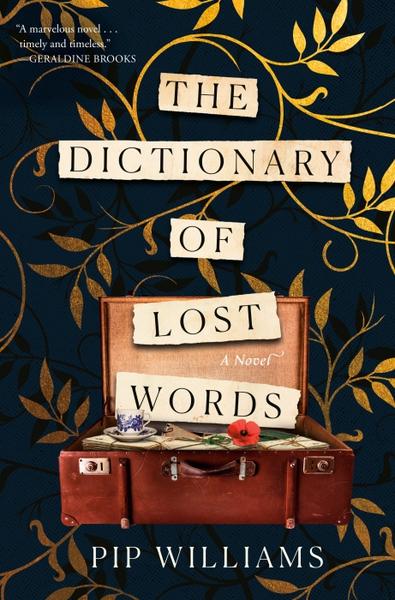- Bearbeitet
Where to begin?
It first and foremost reminded me of why I love to read and write, and it deepened my fascination with the concept of languages.
Language, and therefore words, is unassuming. It’s not exclusive to one gender, to one culture, to one race. It is what we do with those words that might restrict their use, that makes it a matter of inclusion or exclusion – which in and of itself is nothing bad. After all, there are over 6’000 languages spoken in the world we live in. I don’t think one lifetime would suffise to learn every word of every tongue.
It’s where exclusion and restriction come to harm the people using it that we need to consider our own editing as damaging.
The author did a marvellous job at giving the women who were a part of the making of the Oxford English Dictionary (no matter how ‘small’ their role) a voice, a life. Pip Williams in a sense is Esme, and Esme is Pip Williams.
Esme’s calm but persistent and assertive nature spoke to me because her view on life and different topics so often matched my own, but I want to take the way she was able to voice it with so very few words yet oh so pointed and nonjudgmental as an example for myself.
The fact that this story takes place in England in the late 1800s, early 1900s makes the inclusion of the start of the suffrage movement and World War 1 almost unavoidable, and I’ve learnt so much more.
The most reassuring bit being seeing how far the feminist movement has already come up until now, and realising that we all play a part in it. It’s another for everyone but we all play one.
Like what Ditte wrote to Esme in regards to the question if the latter did enough for the rights of women since she didn’t feel brave enough to be standing with those other women who were being beaten and punished for their cause: «You are not a coward, Esme. It pains me to think that any young woman would think such a thing because she is not being brutalised for her convictions. If Tilda is campaigning for the WSPU, it suits her completely. She is an actress and knows how to provoke an audience. If you want to be useful, keep doing what you have always done. (…) Play a position you are good at, and let others play theirs.»
This is such important advice, and something we need to see from both sides. It is ok, if I’m not the one to protest on the streets, and it’s also ok, if there are others that feel like they should use their voices this way.
Another topic that the author weaves in in such a delicate way is pregnancy where the two people are not in a relationship, much less a marriage, and everything surrounding it – abortion, adoption, etc.
It had (and still has) me grappling with some tough questions and thoughts.
It’s historical fiction and my life is so different to Esme’s in so many ways, yet it’s also so similar.
Now, to list a few more specific reasons why I love this book so much:
1. It’s beautifully and authentically written. We grow up with Esme from when she’s six until she’s a woman, and the changes in the way she sees the world are reflected in the writing – BEAUTIFUL!
I, also, never questioned in which era we were.
2. I loved every character as they were all written so carfully and thoroughly, even though not every detail was laid bare. Pip Williams knows how to make the reader see and get a person by showing us how they interact with others – MARVELLOUS!
3. Esme’s development and her character were beautiful to read. I particularly enjoyed seeing how she gained responsibility in her work at the scriptorium. She wished to take on more, be given the same opportunities as her male colleagues, but she also knew she had to take one step after the other. 1) Because she might have overwhelmed her superiors and thus lessened her chances. 2) Because she needed the training from the other stages before, as they made her better in what she did after.
4. I enjoyed the lovestory very, very much – such a sweet, sweet, bittersweet part of the story.
Overall, although the story is quite slow-paced and went an entirely different course than the one I guessed at after reading thr blurb and the prologue, I would recommend this novel to anyone who loves historical fiction, books about feminism and/or is in love with the English language and words on a whole.
I will remember this book for quite some time, I’m sure. Maybe forever.

